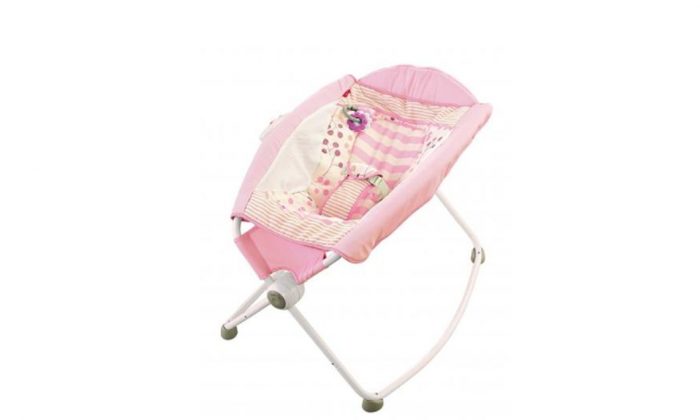- Study Says Most Parents Don’t Use Car Seats In Ride Share Vehicles Like Uber
- This 12-Year-Old Boy Is A Sophomore Aerospace Engineering Major!
- Fire Safety Experts Warn Of Hand Sanitizer Danger After A Mom and Kids Escape House Fire
- Recall Alert: Peaches May Be The Cause Of Salmonella Outbreak, 68 People Ill
- Summer Vacation In The Days Of COVID: Tips To Stay Safe
- How To Safely Grocery Shop During The Coronavirus Pandemic
- Michigan Teen With Vape-Related Illness Undergoes Double Lung Transplant
- Teen Kicks Off Anti-Vaping Campaign From Hospital Bed
- Teenager Receives Life Sentence For Strangling Sister To Death Over A Wi-Fi Password
- Toddler Falls To Death From 11th Deck of Cruise Ship
ALERT: Warning Issued After 10 Babies Die Using Fisher-Price Rock ‘N Play


The US Consumer Product Safety Commission (CPSC) has issued a warning about the Fisher-Price Rock ‘N Play seat, following reports of infant deaths.
The alert was issued by the CPSC on April 5 2019, stating that death may occur “when infants roll over in the product.”
At least one of the Rock ‘N Play models was manufactured in China.
Ten infant deaths in the Rock ‘N Play have occurred since at least 2015.
“After the infants rolled from their back to their stomach or side, while unrestrained,” is when the deaths took place, says the agency.
The infants were aged 3 months or older.
The CPSC now advises consumers to stop using the product by 3 years of age or as soon as the infant is able to roll over.
The agency said it has “has previously warned consumers to use restraints in infant inclined sleep products.”
“Fisher-Price warns consumers to stop using the product when infants can roll over, but the reported deaths show that some consumers are still using the product when infants are capable of rolling and without using the three-point harness restraint,” according to the agency.
Parents should create a safe environment for infants when they are using a crib, play yard, bassinet, or any other sleeper.
Stuffed toys, pillows, blankets, and other items should not be included in the sleeping area as these can pose a hazard, the agency says.
Read more sleep safety tips here.








0 comments